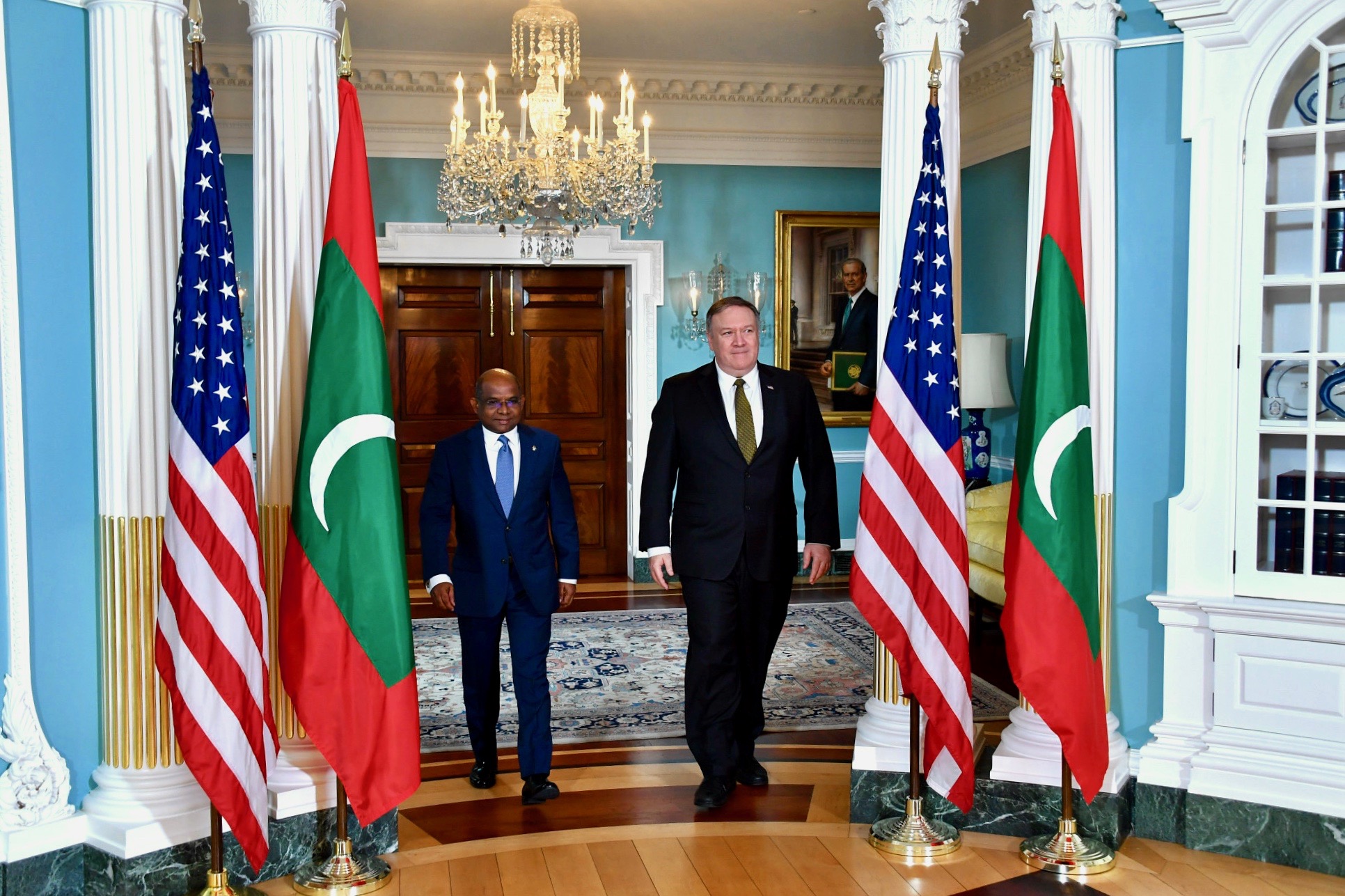 U.S. Department of State / Public Domain
U.S. Department of State / Public Domain
The Maldives: Competitive Climate Diplomacy
On a recent trip to the Maldives, Secretary of State Pomepo opened, for the first time, a U.S. embassy. While this is the first time the U.S. has had an embassy in the Maldives, the U.S. has had diplomatic relations with the Maldives since 1966. The opening of an embassy in the Maldives signifies the country’s growing role in the U.S. strategy to increase its presence in the Indo-Pacific region and counter China’s growing influence and could play a role in U.S. climate diplomacy.
Since the U.S. withdrawal from the Paris Agreement, China has sought to fill the vacuum left by the U.S.’ retreat from climate leadership. Many of the countries in the Indo-Pacific region are vulnerable to the risks of climate change — Bangladesh, Vietnam, Solomon Islands, the Maldives, just to name a few. In fact, the Maldives held an underwater cabinet meeting in 2009 to demonstrate how dire the climate crisis is for island nations.
China has capitalized on this vulnerability to increase its regional influence. For example, in an attempt to fight rising sea levels, the Maldives have been building an artificial island and city dubbed the “City of Hope” or Hulhumalé. This island is propped up by sand pumped in from nearby atolls and thick supporting walls that raise it above the encroaching sea. Extensive infrastructure projects such as this understandably costs billions, money the Maldives doesn’t have. A fair amount of the funding for this project came from China. Funding for other projects, like those for clean water, has also come from China; obtaining funding from China is significantly easier than traditional funding sources.
China’s aid and diplomacy extends beyond that given to the Maldives. Last year, the Solomon Islands broke diplomatic ties with the government of Taiwan to establish official ties with China. This move may be in response to the promise of $8.5 million in Chinese aid. Such an economic boost is important to the Solomon islands as it develops climate-resilient infrastructure. The realignment of the Solomon Islands over economic and climate concerns has signaled a change for other regional actors to do the same. Other countries that have received or been promised aid from China include Vietnam and the Philippines.
Simply opening an embassy in the Maldives is not sufficient to counter China’s influence in the Indo-Pacific. It is essential that the U.S. invest resources, similar to the investments that China is making, to help the Maldives and other nations in the region become more climate-resilient. It is likely that a President-elect Biden will make similar overtures to other countries in the region as he tries to re-position the U.S. as a climate leader.
A recent ASP article outlined the importance of climate change cooperation with China amidst increasing competition. While it is important for the U.S. and China to find opportunities for cooperation, there may be one area of competition helpful to fighting climate change: climate diplomacy and aid. While the U.S. and China compete for influence in the strategically important Indo-Pacific region, climate-vulnerable countries stand to benefit from the increased diplomatic attention and aid.
With the Maldives and Solomon Islands teetering in favor of China’s increasing aid, it is important the U.S. reassert itself as a climate leader and give these countries an alternative to China. To do so, the U.S. must be attentive to the climate concerns of these potential allies.





